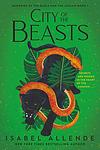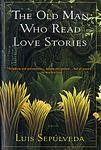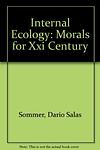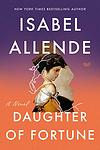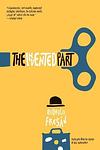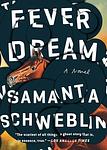The Greatest Chilean, Argentinian "Fiction" Books Since 1980
Click to learn how this list is calculated.
This list represents a comprehensive and trusted collection of the greatest books. Developed through a specialized algorithm, it brings together 300 'best of' book lists to form a definitive guide to the world's most acclaimed books. For those interested in how these books are chosen, additional details can be found on the rankings page.
Genres
Countries
Date Range
Reading Statistics
Click the button below to see how many of these books you've read!
Download
If you're interested in downloading this list as a CSV file for use in a spreadsheet application, you can easily do so by clicking the button below. Please note that to ensure a manageable file size and faster download, the CSV will include details for only the first 500 books.
Download-
1. The House of the Spirits by Isabel Allende
"The House of the Spirits" is a multi-generational saga that explores the lives of the Trueba family, set against the backdrop of political upheaval in an unnamed Latin American country. The narrative is driven by the family's strong and magical women, including clairvoyant Clara and her granddaughter Alba. The story spans over three generations, weaving together personal, social, and political threads, and is rich in elements of magical realism. The novel explores themes of love, violence, social class, and the struggle for power.
-
2. The Savage Detectives by Roberto Bolaño
"The Savage Detectives" is a novel that follows the lives of two Latin American poets, Arturo Belano and Ulises Lima, who are founders of a literary movement called "visceral realism." The book is divided into three parts and is narrated by multiple characters, providing different perspectives on the protagonists. The narrative spans over 20 years, following the poets' journey from Mexico City to Europe, Israel, and Africa, as they search for a mysterious poetess and navigate through the world of literature, sex, drugs, and the complexities of life.
-
3. 2666 by Roberto Bolaño
The novel is a sprawling, ambitious work that spans continents and time periods, centering around an elusive, reclusive German author. It intertwines five different narratives: a group of European academics searching for the author, a professor in Mexico dealing with his own personal crises, a New York reporter sent to cover a boxing match in Mexico, an African-American journalist in Detroit, and the horrifying and unsolved murders of hundreds of women in a Mexican border town. The narratives are linked by themes of violence, mystery, and the search for meaning in a chaotic world.
-
4. Of Love and Shadows by Isabel Allende
Set against the backdrop of a South American country under a military dictatorship, this novel follows the story of a woman journalist and her lover, a photographer, who, while working together, uncover a hidden mass grave in a remote part of their country. Their discovery leads them into danger as they try to expose the truth about the brutal regime ruling their country, while also dealing with their own personal issues and their growing love for each other. The story is a blend of romance and political drama, showing the power of love and courage in the face of oppression and fear.
-
5. The Witness by Juan José Saer
"The Witness" is a novel that explores the life of a young European boy who is the only survivor of a shipwreck in the 16th century. He is found and raised by a tribe of Indians in South America, where he spends ten years of his life. The boy is eventually found by a band of Spanish conquistadors and returns to Europe, where he becomes a well-respected scholar. The story unfolds as the man, now in his 90s, recounts his experiences and struggles to reconcile his European identity with his decade-long immersion in the tribal culture.
-
6. Santa Evita by Tomás Eloy Martínez
"Santa Evita" is a fictionalized account of the life and death of Eva Peron, the beloved First Lady of Argentina. The book delves into the mysterious journey of her embalmed corpse which was moved around the world and hidden for 16 years after her death. The narrative, interwoven with historical facts, explores the cult-like fascination and devotion that surrounded her during her life and continues after her death.
-
7. The Impenetrable Madam X by Griselda Gambaro
"The Impenetrable Madam X" is a provocative play that delves into the complexities of human relationships and societal expectations. Set against a backdrop of surrealism and absurdity, the narrative follows the titular character, a woman shrouded in mystery and power, who interacts with various other characters in a series of disjointed scenes. Through sharp dialogue and symbolic interactions, the play explores themes of identity, power dynamics, and the struggle for understanding within the confines of a world that oscillates between the real and the fantastical. The work challenges audiences to question the nature of reality and the masks people wear in their daily lives.
-
8. City of the Beasts by Isabel Allende
A 15-year-old boy is forced to move in with his eccentric grandmother after his mother falls ill. Together, they embark on a journey to the Amazon rainforest in search of a legendary, healing beast. Along the way, they encounter various challenges, including dangerous animals, harsh environments, and a group of indigenous people with mystical powers. The boy learns to overcome his fears and prejudices, forming a strong bond with the indigenous people and the rainforest itself.
-
9. We All Love Glenda So Much And Other Tales by Julio Cortazar
This collection of short stories delves into the surreal and the everyday with equal finesse, exploring the boundaries of reality and the quirks of human relationships. The narratives range from the titular tale, which examines the obsessive adoration of a famous actress, to more abstract and fantastical explorations of human experience. The author's masterful prose and innovative storytelling techniques invite readers to question the nature of truth and fiction, often blurring the lines between the two, while presenting a series of vignettes that are both thought-provoking and emotionally resonant.
-
10. The Old Man Who Read Love Stories by Luis Sepúlveda
The book tells the story of an elderly man who, having settled in a remote Amazonian village, develops a passion for reading romance novels to escape the monotony of his daily life. His peaceful existence is disrupted when he is called upon to track down an ocelot that has been killing the local villagers' animals. As he ventures into the jungle, his journey becomes both a physical and emotional adventure, intertwining his love of literature with his deep respect for nature, and ultimately leading him to confront not only the wild cat but also the complexities of human nature and love.
-
11. Internal Ecology Morals For Xxi Century by Dario Salas Sommer
This book delves into the intricate relationship between individual moral development and the broader ecological balance of our planet, proposing that the environmental crises of the 21st century are deeply intertwined with the moral and ethical decay observed in contemporary society. The author argues that by fostering a deeper understanding of our internal ecology—our thoughts, emotions, and spiritual well-being—we can cultivate a more harmonious relationship with the external world. Through a blend of philosophical insight and practical guidance, the text invites readers to embark on a journey of personal transformation as a foundational step towards addressing the global environmental challenges of our time, emphasizing the critical role of individual responsibility and ethical conduct in shaping a sustainable future.
-
12. Distant Star by Roberto Bolaño
"Distant Star" is a chilling novel set in Chile following the 1973 coup that overthrew Salvador Allende. The story focuses on a character who uses his position as a member of the Chilean Air Force to commit heinous acts of violence. His fascination with poetry and aerial acrobatics is interwoven with his terrifying actions, creating a disconcerting contrast. The narrative explores the horrific realities of political upheaval, the fine line between art and brutality, and the long-lasting effects of trauma.
-
13. Death And The Maiden by Ariel Dorfman
In a post-dictatorship country, a former political prisoner, Paulina, encounters a man whom she believes to be her former torturer. She takes him captive and subjects him to a mock trial, seeking justice for the atrocities she endured. As the tension escalates, the play delves into themes of truth, revenge, and the complex aftermath of trauma, challenging the audience to question the blurred lines between victim and perpetrator in a society grappling with its dark past.
-
14. Daughter Of Fortune by Isabel Allende
This novel is a sweeping tale of love, adventure, and discovery set against the backdrop of the California Gold Rush. It follows the journey of a young orphan raised in the British colony of Valparaíso, Chile, who embarks on a daring quest to find her lover in the goldfields of California. Along the way, she transforms from a naive girl into a strong and independent woman, encountering a diverse cast of characters who shape her destiny. The story delves into themes of freedom, identity, and the pursuit of fortune, offering a rich exploration of historical events through the eyes of a determined protagonist seeking her place in a rapidly changing world.
-
15. Trust by Hernán Díaz
"Trust" by Hernán Díaz is a novel that follows the journey of a young man named Rafael, who leaves his home in Mexico to pursue the American Dream in the 19th century. Rafael's journey takes him through the Wild West, where he encounters a diverse cast of characters and faces numerous challenges. Along the way, he learns about the complexities of trust and betrayal, and ultimately discovers the true meaning of home and belonging. The novel is a poignant exploration of identity, immigration, and the American experience.
-
16. Eva Luna by Isabel Allende
"Eva Luna" is a magical realism novel that tells the story of the eponymous protagonist, an orphaned girl in a South American country who uses her gift of storytelling to navigate through life. As she grows, she becomes a servant, a lover, and a revolutionary, always using her stories to bring comfort, provoke thought, and incite change. The narrative is a rich tapestry of characters, politics, and history, all woven together with a touch of the fantastical.
-
17. Things We Lost In The Fire by Mariana Enríquez
"Things We Lost in the Fire" is a gripping collection of short stories set in contemporary Argentina, weaving together elements of horror, social commentary, and the supernatural. The stories delve into the lives of characters grappling with the country's dark history, poverty, and political unrest, while confronting personal demons and societal violence. Themes of addiction, inequality, and the resilience of women in the face of patriarchal oppression are explored through haunting narratives that challenge the boundary between reality and the macabre, leaving readers unsettled yet deeply moved by the raw humanity within each tale.
-
18. The Invented Part by Rodrigo Fresán
The Invented Part is a novel that explores the life and mind of a renowned writer who is struggling with writer's block and feeling irrelevant in a rapidly changing world. As he grapples with his own existence, reality, and the nature of fiction, he embarks on a journey that takes him through his past, the lives of his friends and family, and even through the works of his literary heroes. The novel is a mix of science fiction, pop culture references, and philosophical musings, all woven together by the writer's desire to understand and redefine his place in the world.
-
19. Fever Dream by Samanta Schweblin
"Fever Dream" is a gripping and unsettling narrative that unfolds as a conversation between a woman named Amanda, who is lying in a rural hospital bed, and a young boy named David, who urgently prompts her to recount the events leading up to her illness. Through their dialogue, a sense of dread builds as Amanda recalls the strange occurrences and the sense of impending doom she felt while vacationing in the countryside. Central to the story is the theme of maternal love and the lengths a mother will go to protect her child, as well as the mysterious connection between Amanda's daughter and David. The novel's fragmented and hallucinatory style creates a disorienting experience, reflecting the title's suggestion of a dream-like state where reality blurs with nightmare, leaving the reader to piece together the haunting puzzle.
Reading Statistics
Click the button below to see how many of these books you've read!
Download
If you're interested in downloading this list as a CSV file for use in a spreadsheet application, you can easily do so by clicking the button below. Please note that to ensure a manageable file size and faster download, the CSV will include details for only the first 500 books.
Download






